Brahim Boujida, HR Director, Accenture
)
WAM Tech Talks 4.0 – Interview with Brahim Boujida
Q1: What does Accenture see as the biggest opportunities in regions like Morocco and North Africa when it comes to manufacturing and logistics?
North Africa is uniquely positioned in today’s rebalancing of global supply chains. Post-COVID, companies are actively diversifying their operations to reduce risk. Morocco, in particular, offers a rare mix of political stability, strategic geography, and a highly skilled workforce. We're not speaking hypothetically—sectors like automotive, aerospace, and increasingly electronics already show that Morocco can deliver at global standards. The next frontier is to deepen that capability into regional centers of excellence that fuse operational execution with digital innovation..
Q2: Accenture is deeply involved in digital transformation. How do you see emerging technologies- like AI, automation, or digital twins- shaping the future of operations and executive support?
AI, automation, and digital twins are no longer "future trends"—they’re already shaping how organizations operate, compete, and lead. In operations, we see predictive capabilities driving downtime to near zero. In executive support, AI is becoming a trusted co-pilot. But this shift isn't just technical—it’s cultural.
As I often say: this is not an IT transformation, it’s a human transformation.At Accenture, we’re living this ourselves. We've launched large-scale reskilling programs across markets, built executive enablement labs to support leaders through this transition, and embedded AI fluency into our global learning agenda. The workforce of tomorrow isn’t just tech-enabled—it’s transformation-ready.
Q3: How do events like WAM help accelerate collaboration between business, government, and tech players?
Transformation doesn’t happen in silos—it requires a systemic shift. WAM is a platform that creates this connective tissue: where CEOs meet regulators, where startups meet investors, and where policy and innovation start speaking the same language. I've personally seen the impact of such forums. At a previous event in Europe, a public-private initiative for green mobility was born from a roundtable like this—and now employs over 500 people across sectors. These are not just conversations; they are launchpads for scalable, multi-actor solutions.
Q4. WAM Morocco brings together leaders across manufacturing, logistics, and tech. Why is it important for HR Director to be exposed to these kinds of cross-industry environments?
Because the future of leadership is no longer industry-specific — it’s ecosystem-driven. As a HR leader, I’ve seen how transformation often begins where disciplines collide: where manufacturing meets AI, where logistics connects to cloud, where business strategy intersects with human potential.
Being in environments like WAM allows me not just to observe innovation, but to anticipate its talent implications. When I hear what’s changing in factories, in supply chains, in boardrooms — I translate that into skills development, into leadership pipelines, into new ways of working across continents.
But beyond strategy, there’s a deeper reason.
I was not born into this role — I grew into it, through learning, exposure, and the belief others placed in me. And I carry that same responsibility forward. When I engage with cross-industry leaders, I’m looking for signals — not just of economic value, but of where the next generation can rise. Especially in regions like North Africa, we can’t afford to prepare our youth for yesterday’s economy.So yes, HR must be in these rooms — not because we support change, but because we are builders of it. If we want inclusive growth, courageous leadership, and human-centred innovation, we must stand at the crossroads — with open eyes, a strategic mind, and a very human heart.
Q5. Events like WAM promote knowledge exchange across borders. What are some best practices from your global experience that could benefit Moroccan or North African organizations?
In my global experience, sustainable transformation happens when leadership across sectors aligns around a long-term vision. When CEOs, policymakers, and educational institutions co-create a shared roadmap for skills and innovation, the pace of progress accelerates exponentially. This kind of alignment is not a luxury — it’s a necessity for countries seeking to compete globally.
Cross-border talent mobility is another game-changer. At Accenture, we’ve seen the value of enabling young professionals to rotate across markets — from the U.S. to the Middle East, from Asia to Europe. These experiences accelerate maturity, expand cultural intelligence, and develop the kind of globally minded leadership that modern organizations need. In several cases, talents from emerging markets have joined high-impact projects in other geographies, returned home, and led regional innovation efforts with a new lens. It’s not just skill-building — it’s transformation through exposure.
Lastly, ecosystems thrive when public and private sectors don’t just coexist — but truly co-invest. Whether it’s in digital learning academies, joint R&D hubs, or innovation corridors, the power lies in collective ownership. Morocco has the talent, the energy, and the momentum. What’s needed now is bold collaboration to turn potential into lasting advantage.
Q6: Why do you think it’s important for global companies like Accenture to engage with platforms like WAM Morocco?
To truly serve a region, you need to be embedded in it — not just commercially, but structurally and culturally. Platforms like WAM offer that access.
They provide a window into the priorities, tensions, and ambitions of local ecosystems. More importantly, they create the conditions to listen, co-create, and engage early — alongside startups, corporates, policymakers, and academia.At Accenture, this is not a new approach — it’s a proven model. In South Africa, our Skills to Succeed initiative has helped tens of thousands of young people gain job-ready skills through collaboration with government, NGOs, and private sector players. In Romania, we partnered with universities to launch Accenture Academy, creating AI, Cloud, and Industry X programs tailored to the local market’s future needs. And globally, our Talent Advancement Programs enable professionals to rotate across geographies — from the U.S. to the Middle East — accelerating leadership maturity and cultural fluency.
What ties all these efforts together is our belief in ecosystem co-design. We don’t parachute in solutions — we co-build them with local actors. WAM Morocco offers the ideal environment to bring that same model to North Africa: one that combines technology, talent, and trust to shape inclusive and competitive growth.
Q7: WAM Morocco focuses on accelerating industrial transformation. From your perspective, why is it important for Accenture to engage with ecosystems like this—particularly in emerging regions like North Africa?
Emerging regions like North Africa are no longer playing catch-up — they are building new models, often faster and more natively digital than more mature markets. With a young, ambitious workforce, growing investment in infrastructure, and increasing openness to innovation, this region holds the building blocks for an entirely new industrial narrative.
At Accenture, we see our role not just as a service provider, but as a strategic catalyst — working hand-in-hand with ecosystems to design the next generation of industry: more connected, more sustainable, and more inclusive. Engaging early means we help shape the architecture, not just implement it.
These regions are not alternatives — they are future drivers. And perhaps more importantly: they are writing the blueprint for what modern industry will look like in the next decade. Not by replicating the past, but by redefining what's possible when talent, technology, and ambition converge without legacy constraints.






